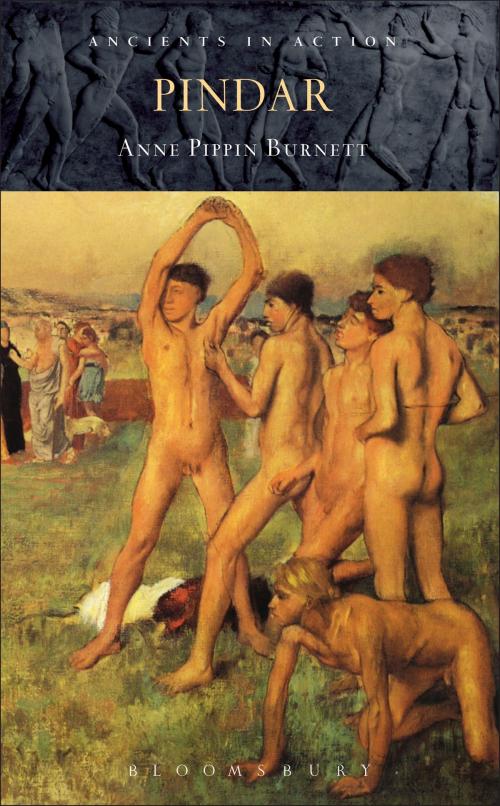Pindar
Fiction & Literature, Literary Theory & Criticism, Ancient & Classical, Poetry History & Criticism| Author: | Anne Pippin Burnett | ISBN: | 9781472521484 |
| Publisher: | Bloomsbury Publishing | Publication: | October 16, 2013 |
| Imprint: | Bloomsbury Academic | Language: | English |
| Author: | Anne Pippin Burnett |
| ISBN: | 9781472521484 |
| Publisher: | Bloomsbury Publishing |
| Publication: | October 16, 2013 |
| Imprint: | Bloomsbury Academic |
| Language: | English |
Of all the lyric poets of ancient Greece, Pindar is the one whose work has been best preserved. His odes to victorious Greek athletes were entertainments designed for performance in a hospitable atmosphere of drinking, dining and jokes. The victor has known the favour of the god whose contest he entered, and has brought back pan-Hellenic fame to his family, friends and city. To extend this glory and make it permanent, he has commissioned a song of praise, had dancers trained to sing it, and summoned an audience of kinsmen, neighbours and friends to enjoy it. Pindar's odes contain invocations and prayers, but their most characteristic effects are achieved thhrough the depiction of fragments of myth. Anne Pippin Burnett argues that these passages were meant neither as mere decoration nor as moral instruction, but served rather as a dramatic mechanism by which dancers brought an experience of another world to guests gathered in the banqueting suite of the victor.
Of all the lyric poets of ancient Greece, Pindar is the one whose work has been best preserved. His odes to victorious Greek athletes were entertainments designed for performance in a hospitable atmosphere of drinking, dining and jokes. The victor has known the favour of the god whose contest he entered, and has brought back pan-Hellenic fame to his family, friends and city. To extend this glory and make it permanent, he has commissioned a song of praise, had dancers trained to sing it, and summoned an audience of kinsmen, neighbours and friends to enjoy it. Pindar's odes contain invocations and prayers, but their most characteristic effects are achieved thhrough the depiction of fragments of myth. Anne Pippin Burnett argues that these passages were meant neither as mere decoration nor as moral instruction, but served rather as a dramatic mechanism by which dancers brought an experience of another world to guests gathered in the banqueting suite of the victor.















